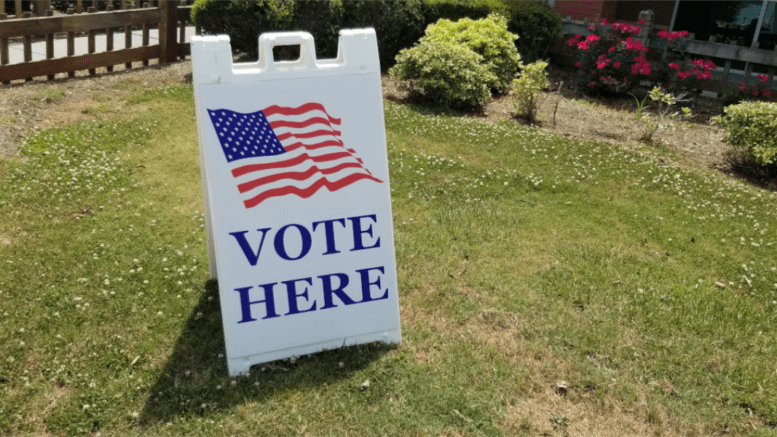By John A. Tures, Professor of Political Science, LaGrange College
Both Ohio Senator J. D. Waltz and Minnesota Governor Tim Walz helped themselves in the most recent Vice-Presidential debate, and hurt their cause as well. Surveys showed each improved their poll numbers after their performance (according to Forbes), but each made an important mistake. The one who recovers from this sooner will be the winner of the VP debate. And as you’ll see in this article, the stakes couldn’t be higher.
Tim Walz stumbled early, and seemed to get off on the wrong foot in answering an early question. He also was called out for stretching the truth in his personal story by one of the moderators. He’s already planning several media appearances to try and address past mistakes. It can’t happen soon enough for him, if he wants to recover from questions asked about his record. On the other hand, he got better as the debate went along, finishing strong. He’ll need more of that second-half style.
J. D. Vance seemed the more professional debater, showing the value of an Ivy League degree. He decided to forego his mean memes and kept his conspiracy theories in check, until his disastrous finish. By dodging a simple question of who won the last election, and brushing aside concerns about January 6, 2021, he’s feeding into the narrative that such a disastrous insurrection is likely to be repeated later this year or early next year. Senator Vance needs to come clean and admit the truth from the last election, if he doesn’t want to lose the next election.
Believe it or not, vice-presidential debate winners do more to influence the presidential ticket in the next election. Ninety percent of the VP debate winners are part of the prevailing president-vice-president team in the November election. That’s a bigger impact than the presidential debates, from the first clash (50% of these debate winners prevail in the Fall election) and second contest (80% of winners win in November) to the last battle (two-thirds of these winners prevail at the ballot box).
Four years ago, California Senator Kamala Harris clearly bested Vice-President Mike Pence, 59 percent to 38 percent en route to helping the Biden-Harris ticket win the White House. Four years earlier, Indiana Governor Pence got the best of Virginia Senator Tim Kaine 48 percent to 42 percent, providing the only win for the GOP that year in the debates, and helping the party win the 2016 election.
Delaware Senator Joe Biden won both of his Vice-Presidential debates, defeating Alaska Governor Sarah Palin 51 percent to 36 percent in 2008 and Congressman Paul Ryan 50 percent to 31 percent in 2012, boosting Barack Obama in both elections with good performances.
Similarly, former Wyoming Congressman and Secretary of Defense Dick Cheney won both of his VP debates. He knocked down Connecticut Senator Joe Lieberman 43 percent to 24 percent in 2000, and North Carolina Senator John Edwards 43 percent to 35 percent in 2004. The margins were pretty close, but so were those of the Bush-Cheney team in both successful elections.
As a Vice-President, Al Gore was a master debater. In 1992, he crushed Vice-President Dan Quayle and Admiral James Stockdale 50 percent to 32 percent, with Admiral James Stockdale netting only 7 percent in 1992. Four years later, in a policy-heavy contest, Gore sacked former New York Congressman and NFL star Jack Kemp 57 percent to 26 percent in 1996.
In 1984, Vice-President George H. W. Bush battled New York Congresswoman Geraldine Ferraro for the “downticket” debate. Pundits thought it was a spirited contest, but polls gave Bush the win 48 percent to 34 percent. And the Reagan-Bush ticket handily won reelection.
In 1976, GOP VP Candidate Senator Bob Dole, the Kansas Republican, squared off against Minnesota Senator Walter Mondale, the Minnesota Democrat and Georgia Governor Jimmy Carter’s choice for the number two position. Dole was aggressive and negative, but Mondale won points for resisting those attacks. The New York Times claimed analysts gave Mondale the nod in the debate, and he won the Vice-Presidential job that November. And no VP debates were held in 1960 or 1980.
The lone exception was in 1988. In fact, it may be the most memorable contest, the one where vice-presidential candidate Dan Quayle (Republican), an Indiana Senator, tried to compare himself to Jack Kennedy’s level of service. Texas Senator Lloyd Bentsen, the Democratic choice gave the immortal quip “You’re no Jack Kennedy.” Bentsen won the debate 51 percent to 27 percent, but his Democratic team lost the election later to George H. W. Bush and Quayle.
If Vance and Walz want to avoid the fate of other VP candidates who were defeated in November, they need to address their flaws, and sooner rather than later. Whoever fixes their mistake will likely be the next vice president.
John A. Tures is a professor of political science at LaGrange College in LaGrange, Georgia. His views are his own. He can be reached at jtures@lagrange.edu. His “X” account is JohnTures2.
